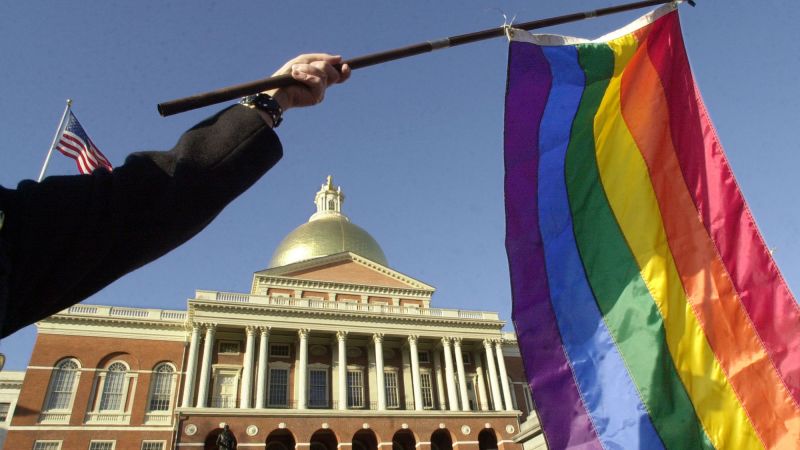Twenty years ago, in 2004, the issue of same-sex marriage was highly divisive in the United States. The vast majority of Americans opposed same-sex marriage at that time. Mitt Romney, who was the Republican governor of Massachusetts, planned to invoke a 1913 law to prevent same-sex couples from obtaining marriages in the state. Then-President George W. Bush actively pushed for an amendment to the US Constitution to protect marriage, which he described as a fundamental institution of civilization. Despite the opposition, same-sex marriage became legal in Massachusetts in 2004.
In November 2004, voters in 11 states, ranging from red to blue states, codified in their constitutions that marriage should be between a man and a woman. The approval of a marriage amendment in Ohio may have helped Bush win the pivotal state and retain the White House. The 2015 Supreme Court case, Obergefell v. Hodges, which ultimately granted the right to same-sex marriage nationwide, emerged as a result of the Ohio amendment. Public opinion on same-sex marriage has shifted dramatically over the years, with support for marriage equality increasing significantly.
By 2012, public opinion had shifted enough for Barack Obama, who previously opposed same-sex marriage, to announce his support for it. This marked a significant change in public perception, with the winning candidate in the 2012 election, Obama, supporting marriage equality. In contrast, in 2004, the winning candidate, Bush, exploited opposition to same-sex marriage to win reelection. In 2022, Senator Mitt Romney, who lost to Obama in 2012, voted to protect same-sex unions in case the Supreme Court overturned the national right to marry established in 2015.
Today, the Supreme Court is more conservative than in 2015, with Justices Kavanaugh and Barrett replacing Justices Kennedy and Ginsburg, who supported same-sex marriage. Despite some conservative justices expressing opposition to the Obergefell decision, it is unclear whether there will be an opportunity to overturn it or if the current conservative justices would support such a move. Romney’s support for protecting same-sex unions indicates a shift in his position, while still affirming his belief in traditional marriage.
Recent surveys show that a strong majority of Americans now support same-sex unions, with support varying across states. Factors contributing to the shift in public opinion include an increase in LGBTQ identification, higher representation in media and government, and the rise in same-sex couples and marriages. Research also suggests that same-sex marriage has not negatively impacted traditional marriage, with marriage rates increasing among opposite-sex couples in states that allowed same-sex marriage.
While support for same-sex marriage has seen a significant turnaround, the fight for LGBTQ rights continues, with transgender rights becoming a prominent issue in state legislatures. Politicians continue to navigate social issues such as same-sex marriage and abortion rights to connect with voters. Support for legalizing marijuana has also seen a notable shift, mirroring the changing attitudes towards same-sex marriage. As the debate over LGBTQ rights evolves, it remains a prominent issue in politics and society.


